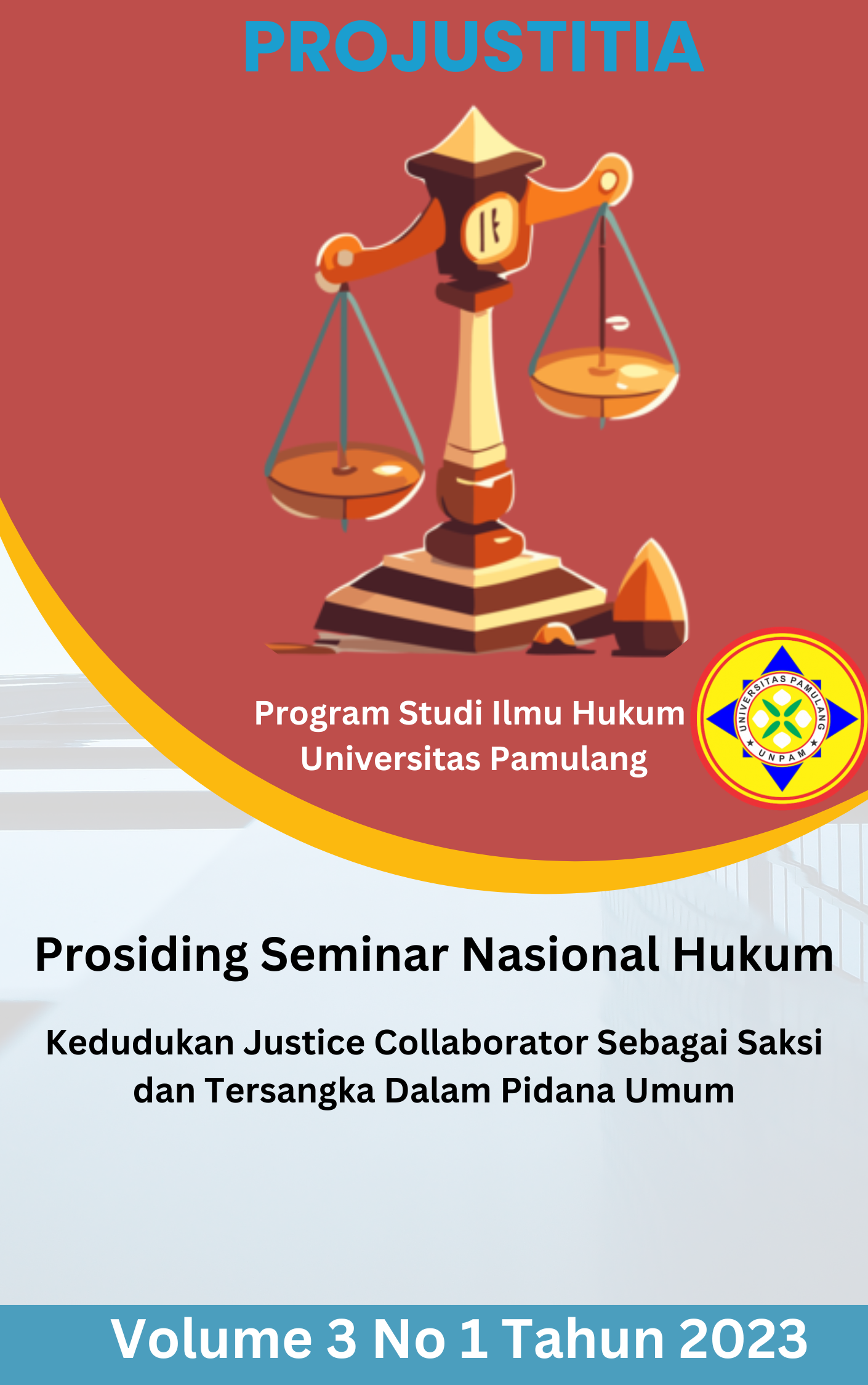ANALISIS YURIDIS TERHADAP PENJATUHAN HUKUMAN TAMBAHAN BERUPA KEBIRI KIMIA BAGI PELAKU KEJAHATAN KEKERASAN SEKSUAL KEPADA ANAK DI BAWAH UMUR DI TINJAU DARI PASAL 28 b UNDANG-UNDANG DASAR 1945
Abstract
Children are an important part of society that plays an important role in the survival of a nation and state, therefore the state is obliged to ensure that every child is obliged to obtain legal protection from various aspects of life, as it is known that recently children have become one of the targets crimes, especially crimes of sexual violence. Even from 2019 to 2021 crimes of sexual violence against children are increasing, bearing in mind that Law No. 35 of 2014 has not fully provided a deterrent effect on perpetrators. Therefore, the government, in order to protect children from all forms of sexual violence crimes, made a regulation contained in PP No. 70 of 2020 which regulates the use of chemical castration as a way to give a deterrent effect to perpetrators of sexual violence against children, but in one On the other hand, the provision of additional punishment in the form of chemical castration is considered as torture and is considered to violate human rights because the additional punishment in the form of chemical castration is considered to make the perpetrator unable to continue to reproduce. This study aims to find out what are the implications of the application of chemical castration for perpetrators of crimes of sexual violence against minors when viewed from article 28 b of the 1945 Constitution and to what extent this aspect of giving additional punishment applies. The research method used by researchers in this study is the normative legal method, namely the legal research method used by examining library materials or periodical secondary materials.
Keywords : Children, sexual violence, chemical castration


